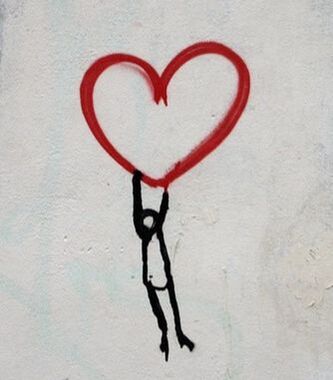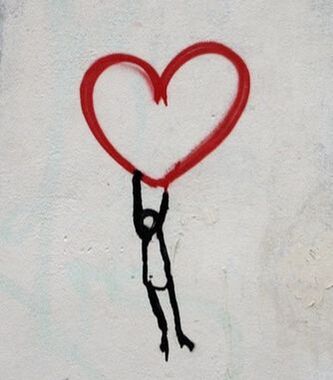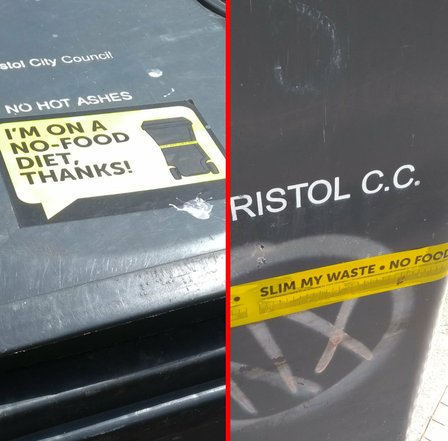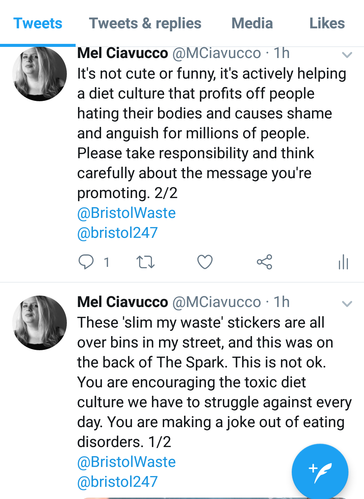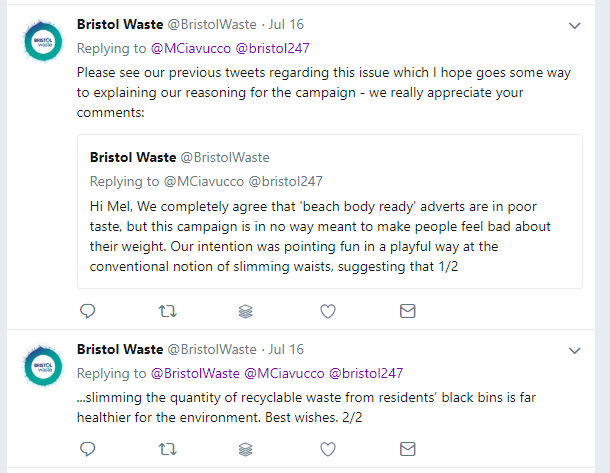|
Body image problems affect lots of different people. We live in an appearance-centred society, but it’s not just about vanity or being shallow. Body image issues aren’t something “silly” experienced by teenage girls, nor are they something we can just “get over”. Body image is partly about how we see ourselves and perceive our bodies, but this is influenced by wider issues such as societal views, diet culture, inequalities, power dynamics and discrimination. I struggled for many years, most of my life, with body image problems. For me this centred on weight but I’m aware that other people have body image issues that have nothing to do with weight or size. My work with individuals and in workshops however does sway toward weight because it is such a big factor for so many people. Weight stigma is so prevalent in our society; it can affect people of various sizes, though people at higher weights face discrimination and many more challenges in daily life. Hating our bodies, being unkind to ourselves and trying to change the way we look isn’t the solution. Punishing ourselves only makes it worse. As a counsellor and trainer with lived experience of body image problems, I am passionate about helping others understand body image on a deeper level, to enable them to challenge their perceptions, assumptions and internalised fatphobia. I personally found that learning about wider societal expectations and inequalities, as well as past experiences and trauma, can help build an understanding of why we struggle with body image. Knowing all of this can help us be more compassionate to ourselves, and others. I find that "body positivity" can be too fluffy. As much as it can be helpful for some people, it can just be yet another pressure; the pressure to “love yourself”, which is a big jump if you’ve hated your body for years. For me, it just seemed unrealistic to jiggle around in a bikini like the people I saw on Instagram when I couldn't even wear a swimming costume without a big baggy t-shirt over it for many years. "Body positivity" has unfortunately been capitalised on by companies who have noticed its popularity, and by influencers and thin (often white) attractive people online who want to promote themselves. Unfortunately, this has taken the movement away from the very people who need it the moment the most; fat, black, queer, disabled people and others who have faced discrimination and oppression. My body image approach involves taking a "big picture" view, understanding the societal and cultural issues surrounding how we see our bodies, including class, gender, disability, race, and more. Accepting our bodies can feel like a radical act in our society where capitalism needs us to be ashamed of our bodies in order to make money. Accepting living in a larger body can be incredibly difficult for people, given the weight stigma and fatphobia they may face. Self-worth is so often tied up in body image. For me, healing came from understanding experiences in childhood which impacted my confidence and self-esteem. Trauma, bad experiences, bullying and attachment difficulties can all play a part in how you view yourself and your body. Gender expectations also play a big part, and how comfortable you feel in your identity. Neurodivergence, such as autism and ADHD, can also impact how you view your body, and how your body feels. I’ve heard many people talk about not fitting in and feeling like they don’t belong, which in itself is a very difficult way to grow up and can result in anxiety and social isolation. Race, culture, disability, chronic health conditions, visible “differences” and much more affect body image. When the dominant beauty standard (here in the UK) is thin, white, young, able-bodied and “normal”, anyone outside of that can be deemed “different”. We could speculate that in fact, all those “different” people would make a majority, though this is more about power held by dominant groups in our society and the “othering” which maintains that power. If you’re struggling with body image, you don’t have to “love” your body right now, but you could start to explore what makes you feel the way you do about your body. Having counselling may help – if you’re interested in finding out more about my counselling service click here. For professionals, looking at the whole person and intersecting identities, and the context of their life, is so important to understand body image. But the starting point is looking at your own relationship with your own body, and the influences on how you see others’ bodies too. If you’re interested in finding out more about my training on disordered eating, body image and weight stigma, click here.
0 Comments
It’s that time of year again when the adverts start popping up: Slimming World, Noom “we’re-definitely-not-a-diet” diet scammers, and various other teas, pills, workouts, gyms and all the other money-grabbing companies trying to shame you. There are a lot of expectations and pressure to make changes, be better, fitter, healthier, more successful… BUY MORE STUFF! So here’s your friendly reminder…you don’t have to do any of that. If you choose to, that’s up to you, but you don’t have to. Sometimes the kindest thing to do for yourself is to not do anything at all. Maybe you don’t need to change yourself, and the effort of trying to do so is stressful in itself. Many people see Christmas time as a “free pass” to eat what they want – and good for you! BUT…what happens in January then? This time of year can bring about feelings of guilt and shame, and negative thoughts about yourself and your body. For some people, this can lead to disordered eating. Whether you have an eating disorder, or you struggle with food a bit, or it’s more about not liking your body – all of these concerns are valid. Instead of punishing yourself, you deserve help and support. People can be in a vulnerable place to be lured into the diet-scammers territory when they’re not feeling good about themselves. Trust me – they don’t care about your health, they are just about making money. If you like to make New Years Resolutions, how about trying to make them without weight loss in mind? Maybe your resolution could be to be kind to yourself and work on self-acceptance. Maybe you don’t need to make resolutions at all! I remember at school going back after Christmas and being asked to share our New Years Resolutions. I never felt like I fit in so of course I jumped on the bandwagon, and what’s the thing I knew I was expected to say? To lose weight. It was the only acceptable answer as a fat girl. There’s an expectation for fat people to constantly strive to be thin. We’re expected to dedicate our lives to worrying about our bodies, trying different diets til we find “the one” that works (spoiler alert – none of them work!) Eventually, I decided I wasn’t going to stand for that anymore. I could have spent my whole life trying to change my body, but instead I chose to work on accepting it. I’ll be honest and say I don’t think I “love” my body, but it’s a life-long work in progress. I just know I’m glad I made the choice to put my wellbeing first instead of paying money-making diet scammers with empty promises. Body acceptance isn’t easy but neither is dieting. If you’ve spent a long time dieting, I get it. It’s got such a pull and a strong hold over so many people. But you deserve help and support, not to continue to be body shamed by companies, adverts, people on the internet, medical professionals or anyone else. Sometimes, the best way to priorize your health is to start by being compassionate to yourself (but also health isn’t a moral obligation and you don’t owe anyone!)
My tips for being kinder to yourself in 2023:
I’ll be running more body acceptance workshops and will be opening my counselling practice later this year, please get in touch or join my mailing list for more info. Bristol Waste are running a “slim my waste” campaign to encourage people to use separate food waste bins. On every wheelie bin, bright yellow stickers read “I’m on a no food diet” and tape measure style “slim my waste” stickers are wrapped around the middle section. A funny play on words? Not for the 1.6 million people affected by eating disorders in the UK. I’m all for food composting, but there must be better ways to do it than supporting toxic diet culture. In a world where one in four 7-year-old girls have tried to lose weight at least once, it’s imperative that companies promote themselves responsibly. It’s reported that 70% of women have felt pressure from TV and magazines to have the perfect body. And it’s not just girls - 60% of people say they feel ashamed of how they look. Imagine having to walk past a line of wheelie bins, all decorated with tape measures, and having the words “slim my waste” stuck in your mind for the rest of the day. After spotting a full page Bristol Waste advert on the back of The Spark (now run by Bristol 247) with the slogan “have you slimmed your waste yet?’ I decided to tweet Bristol Waste. Their reply suggested other people had flagged it up as an issue too, and this was a copy-and-paste response. What they're effectively saying is “that wasn’t what we intended” and dismissing it as a problem because they don't think it affects people. Well, it does. Multiple people are telling them this. It is arrogant, irresponsible and unprofessional to dismiss it.
These bins are yet another thing people have to walk past every day demanding them to be thinner. Britain’s diet industry is worth billions of pounds - they profit off making people feel ashamed of their bodies. They tell us that beauty and health means being thin, which is simply not true. Healthy bodies come in all shapes and sizes. The diet industry need us to hate our bodies and aspire to be ‘perfect’ otherwise they wouldn’t make any money. “Being sold the message of dieting can produce drastic dieting which can lead to eating disorders. Getting rid of dieting could wipe out at least 70% of eating disorders.” Dr Adrienne Key, Royal College of Psychiatrists. Many people live with guilt and shame around food every day. Many struggle to feel worthy as a person because they’re not thin. They’re bombarded with digitally altered images, Slimming World leaflets through their front doors, adverts for gym memberships and diet pills, the voices of bullies on the street or on the bus. Every time they walk past one of these wheelie bins they’ll be reminded of how they’re not good enough. Bristol Waste is only a tiny part of this bigger cultural problem, but that doesn’t mean they can’t do something about it. To say these slogans are just a bit of fun is to completely deny somebody else’s struggle. It’s never just a funny play on words. Slimming world use “syns” to describe treat foods because they know, psychologically, it won’t make any difference how the word is spelled. The word has the same effect in the mind - guilt and shame - the very thing that brings them more money. I appreciate that Bristol Waste are trying to help us recycle and help save the environment. The funny face stickers for the food waste bins are fun and a great idea. However, the unwillingness to recognize the potential damage of the “slim my waist” stickers shows a complete lack of empathy towards another (large) group of people’s perspective. To deny the problem is to sit in a position of privilege and say “well, it doesn’t affect me”. Positive body image is integral to emotional and mental well-being and it’s crucial that companies and advertisers think carefully and take responsibility for their actions to help make a positive change for the future. |
Categories
All
Archives
June 2024
|
